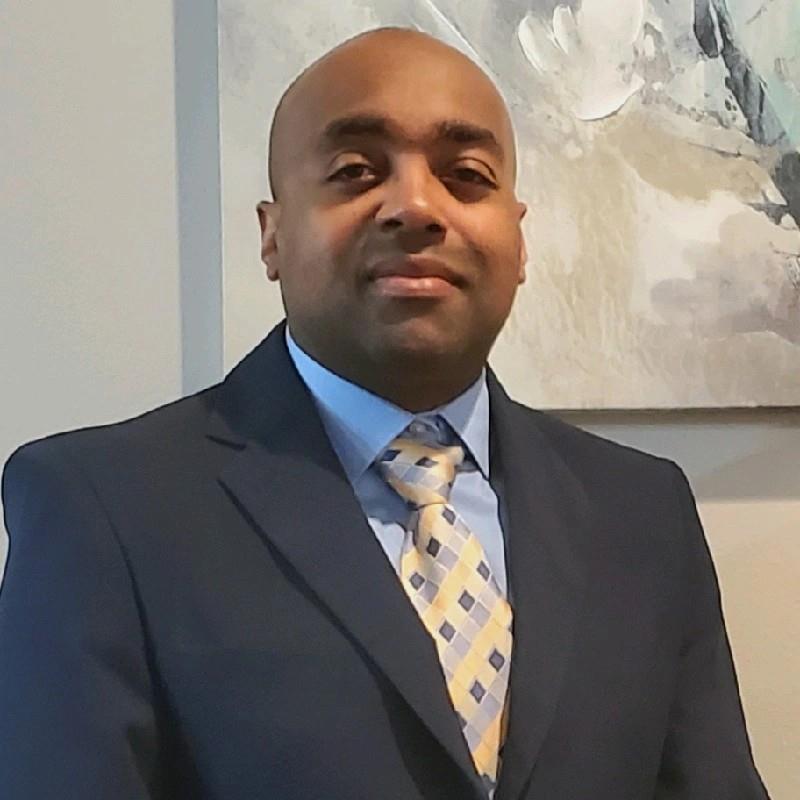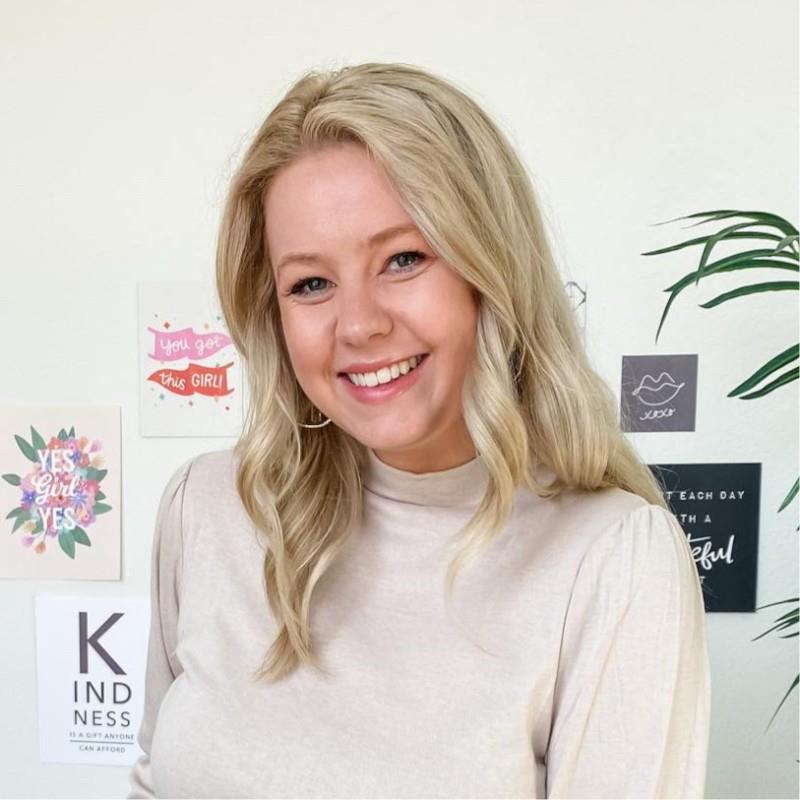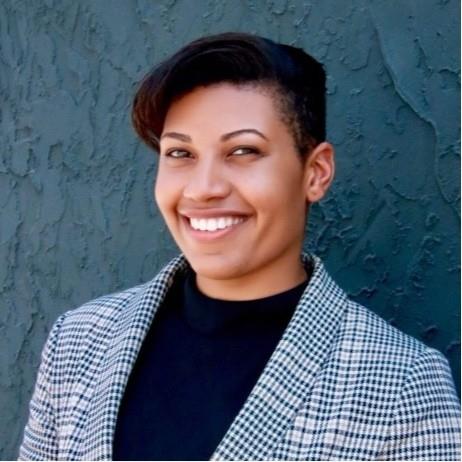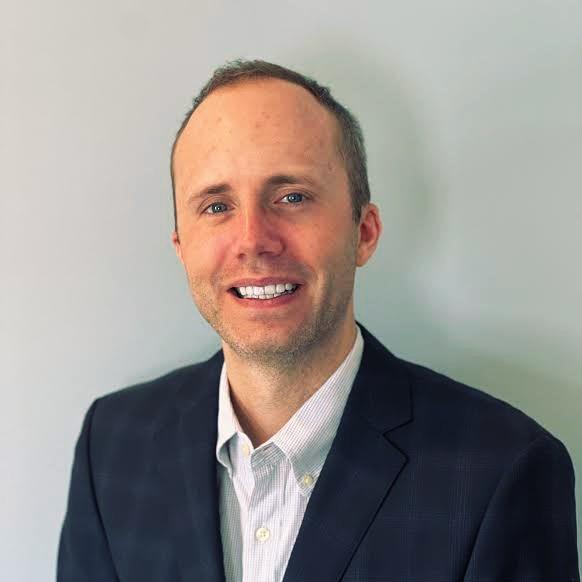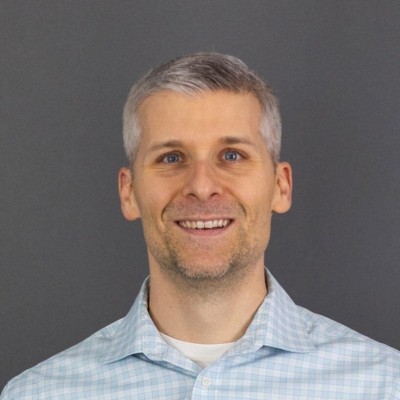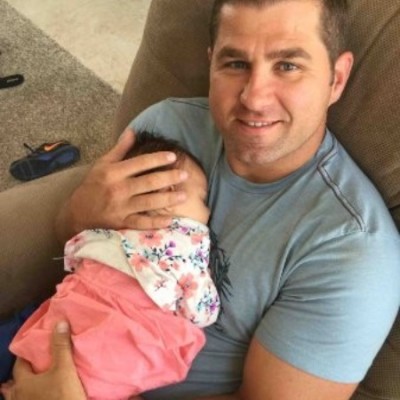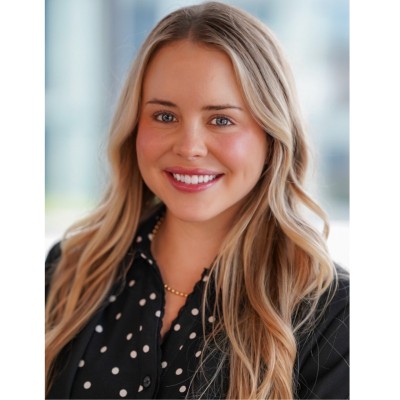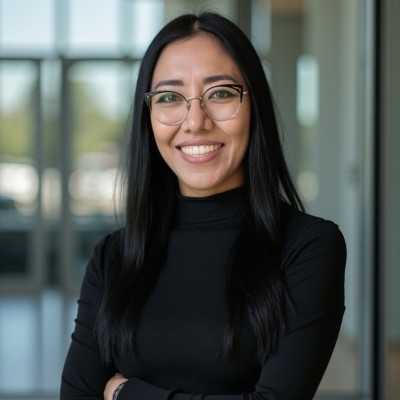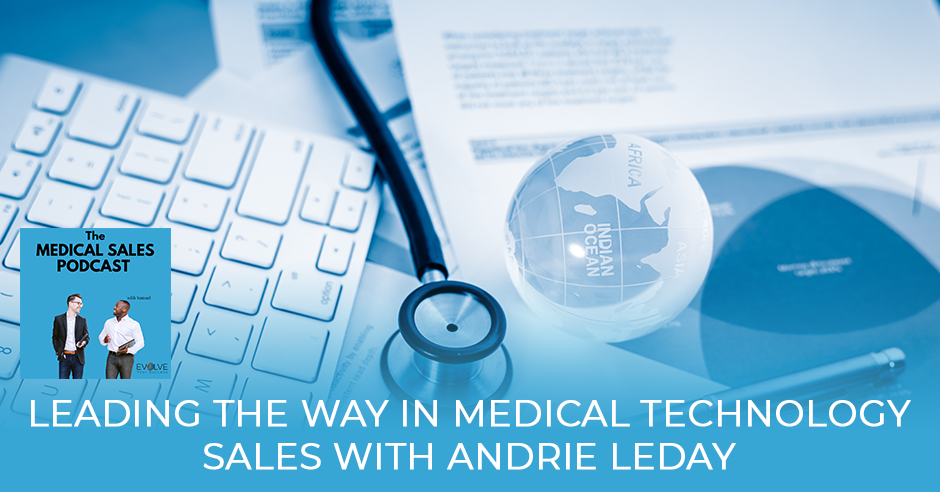
Medical technology sales is an intense and difficult field, but it’s filled with opportunities for people who can provide reliability and value. What is the recipe for success in the medical tech sales field? We learn what that is in this episode as Samuel Gbadebo interviews Medtronic’s Vice President for the Texas/Oklahoma Region, Andrie Leday. Andrie shares his sales experiences in pharma before shifting gears and joining Medtronic. We hear his early struggles and how he rose to success. Tune in and learn more from Andrie’s story and forge your own way to success.
—
Watch the episode here
Listen to the podcast here
Leading The Way In Medical Technology Sales With Andrie Leday
We have with us a very fascinating guest. He goes by the name of Andrie Leday. What makes Andrie’s career tracks so unique is he started as a sales rep in pharmaceutical sales, then rose the ranks to become a Regional Vice President in the Texas Region in the Cranial Spinal Division for Medtronic, one of the largest medical device manufacturers in the world. What’s more interesting is how he did it, the level of intention he set when given any role, and how he exceeded expectations and leveraged it into higher levels of leadership until he got to where he is now.
One of the conversations that we have in this interview that I want to highlight is our conversation around diversity and inclusion, DEI. Andrie is a staunch advocate for DEI. He has demonstrated that throughout his entire career, whether it’s African-Americans, Asians, Hispanic or women. Andrie has taken a position to truly create opportunities and push performers forward from all spaces. It’s allowed them to take on leadership roles within Medtronic which in turn has helped make Medtronic a more diverse company.
In this interview, we get into his personal life, advocacy, intention setting and goal-driven attitude towards his career and how he makes things happen. I’m already saying a lot so I am going to stop. This is a two-part interview. I’m not going to say anymore and spoil it for you. As always, thank you for reading. I hope you enjoy interview part one.
—
How are we doing, Andrie?
I’m doing great, Samuel. How are you?
I’m fantastic. Another wonderful day in 2021. I’m going to go ahead and let you introduce yourself.
I’m Andrie Leday. I live outside of Austin, Texas. I’m born and raised in Texas. I left shortly after graduation from Texas A&M. I moved to Colorado for fourteen years. I’m married to the love of my life, Mrs. Brandy Leday. We have four amazing children. I’m the Regional Vice President of Sales for Medtronic’s Cranial and Spinal Technologies at Texas, Oklahoma, Shreveport Region.
That is a great introduction. Tell us a little bit about that role. What exactly is that role for those that might not be familiar with?
Medtronic has several operating units. One of those four happens to be our Neuroscience Operating Unit and within that, one of our largest businesses is our Cranial and Spinal Technology group, which consists of our core metal and biologics for spine implants and surgeries. Our enabling technologies, robotics, Mazor X, spinal robotics, which is one of the newest offerings, as well as surgical drills, shunts for cranial drainage. You name it, we seem to have our hand with it.
You are doing it big. You said you had four kids?
I do.
You’re not playing around. I can’t wait to get into how all that came about. Let’s take it back to the beginning. I always want to start with where you started your career. What’s so cool about your career path is you started in pharma. Take us after college. Was this a career path that you knew about or something you discovered?

I wish I get started in college. I have been selling and grinding before college. I started and found the love. I’ve written an article about this historically. I was selling peacock feathers. I went at age eight to my grandfather’s farm. He was a plumber by trade. Someone down in Southeast Texas who couldn’t afford to pay him gave him two peacocks as the payment. Those peacocks were on his property and the dogs were stressing them out, so they are dropping feathers everywhere. We show up for Easter in my finest Easter vests and pants with my twin brother and they went inside. I saw these feathers. I’m like, “What are these?” Everyone is like, “Those are nasty dirty peacock feathers.”
I picked them all up, washed them all by hand under the sun, let them out to dry on the broken concrete driveway. Once they dried, I asked my aunt for a ribbon and I tied up a bundle about 8 inches around peacock feathers. I begged my dad to let me take them back to the Dallas Fort area. He’s like, “What are you going to do with those dirty feathers?” I said, “I’m going to sell them.” I got back to Garland, Texas and started my hustle game. I was selling kids the notion of making pins out of it for Mother’s Day and making arrangements so you could put candles in. I sold all those peacock feathers and at the end of two weeks, I had $180.
How old are you when this happened?
I was eight. After that, I got the notion I needed to buy more inventory of other things kids bought, but instead of four packs, I sold them individually. I built my profit line in to get myself and buy more inventory
Tell us what you can remember. What inspired you to do this at eight years old?
The value proposition of currency. Also, I was something of a quiet kid. I had a twin brother. He was the more talkative. For me, to find that measure of success at that age, which was more of my coming out personality-wise, allowed me to interact with people and provide value to them.
You’re a sales professional through and through. From a young age, you knew that selling was your thing. Walk us through. You’ve had that experience. It was very impactful. Did you go into college knowing you wanted to be in a sales career in the future? Where was your mind?
It’s always in sales and marketing. I had the opportunity to earn my undergraduate degree at Texas A&M, Lowry Mays School of Business. I was 1 of the 4 children in my family to graduate from Texas A&M. It always felt like home. It gave me an opportunity while I’m there to interact as a student liaison for the president of the university. I also ran our Aggie Outreach Program, which is a philanthropy opportunity, which is student-led and ran a team of up at one point, 60 students, which drove some of our alumni donations. I helped that program move from $800,000 a year to $2.3 million a year in one year. Looking at ways to contribute, networking as well is something I learned at Texas A&M that I’ll always be thankful for.
Coming out at Texas A&M, a lot of people that I talk to sometimes knew about the career. A lot of times, they had no idea that this was a career. Where do you lie?
I knew selling was the thing I wanted to do. Medical sales or medical device sales was boring to me. I had limited to no exposure to it until I moved to Colorado. My father-in-law knew a lady by the name of Charlotte Wilkinson. Charlotte worked for Novartis. She knew of an opportunity in a part of Colorado that no one necessarily wanted to live and didn’t want to cultivate. I pass my information over to the hiring manager, who then interviewed me and gave me an opportunity in the next position.
[bctt tweet=”Grinding and working hard is natural.” via=”no”]
Did you start in pharma then with Novartis?
Yes.
What was that like? Does this come naturally to you? You were already a salesman and a leader from college. How was it to get that first pharma role?
I don’t think any of it was natural. The only thing that was natural was to grind and work hard. That was something instilled in me from a young age, but once I got into pharma, what I did realize is that showing up differently at times is a great benefit. You’re always going to be provided with some type of script. They’re going to have expectations of what to expect, but finding a way to show up differently provided me with a great runway within pharma. The offices that I interacted with loved my Texas accent and my mannerism.
Being a Southerner, being that fish out of the water, plus being a Black man in Southern Colorado that was less than 2.5% of the population, I had an opportunity to stand out. At that point, if you know you’re going to stand out, you have a choice of how you’re going to stand out. For me, I wanted to make sure it was synonymous with service, excellence and performance. I had a great career there at Novartis. I moved over to Merck Vaccines. A huge shout out to Mr. Bob Rice who gave me an opportunity at Merck, another Black leader who saw something in me and brought me over to Merck.
I moved from there to vaccines. I put together some of the most innovative programs for that vaccine group at the time with some HPV vaccines and worked in partnership with planned parenthood to make this multistate pilot program that was highly successful. I moved from there over to an opportunity as a District Manager for Daiichi Sankyo, a Japanese pharmaceutical company. I had a chance to launch one of their business units there and had a great measure of success covering 500,000 square miles.
These moves, were they all highly intentional or did opportunities land in your lap because you were performing so well in your role?
I wish the opportunity would just land but it’s very much intentional. I’m someone who’s always written down goals on a piece of paper. I track myself and my progress. I also surround myself with like-minded people. I have fraternity brothers and other close friends that are running a similar race. You check in on each other. We go through different discussions of challenges with each other, as well as aspirations. There are no crabs in the barrel with this group. We always keep each other lifted. That’s something I draw inspiration from as well.
The last move was we had my first child. At the time, my wife was making more money than me as an escrow officer in mortgage than I was in pharma as a rep. After one week, she looked at me and said, “I don’t think I can leave.” I said, “That was the plan.” I said, “If you give me six months to prove to you I’ve got this, then we’ll be good to go.” I worked 2 or 3 jobs even while in pharma at one time.
What were you doing while you were in pharma?
I was doing nightclub security. Not interfering with my employer. I always wanted to make sure I maintain my integrity. These are things outside of work that I could do like moving things, getting paid for moving the furniture and things of that nature. I always find these odd things where I could contribute. I paid off any rotating debt that we had at the time and showed my wife consistently that we were going to be okay to take care of this baby so she could be home to get everything she wanted to our children, which she’s done now for the last several years.
You were a very busy guy in your original pharma roles. Talk to us a little bit about what happened when you said, “I’m performing well in pharma.” There’s a bright future in pharma. You can go to the executive run in pharma just like you can in a medical device sale but for some reason, you decided to make a switch. What happened there?

I was a district manager in pharma for a Japanese company at the time, Daiichi Sankyo, and I’m doing well. I ran into one of the regional directors for Medtronic at the airport. I’m flying out to Salt Lake City. She’s flying out to Salt Lake City, Miriam Marker. I had a chance to interact with her and I saw her going through some challenges on her phone. It’s similar to my conversations on a Monday morning. I say, “You must be in sales.” That struck the conversation. At the end of that conversation, she said, “Have you ever considered medical devices?” I said, “Yes.” She said, “Have you ever applied to Medtronic?” I said, “Only as many times I have fingers.” I can only assume that my skills don’t quite meet the need. I continue to apply in hopes that as I build more skills and experiences, that ultimately there will be an opportunity.”
She was my sponsor into Medtronic and spoke highly of me to not just her boss but her boss’ boss because historically, they don’t look at people like me to come in. Not just someone who’s African-American but someone out of the pharma space who doesn’t have that device cutting their teeth experience, especially with capital goods. She was consistent. I consistently followed up. Ten months later from that meeting, I had an opportunity to join Medtronic. Honestly, Roy Galvin of Medtronic funded the role out of his own pocket as an associate because they didn’t have headcount approval for it. I had to take a double demotion in the title and severe cut and pay to join Medtronic initially and prove my worth.
Let’s talk about that because for you to be so open to taking that cut means you understood the opportunity with Medtronic or was it something else?
I did my homework to understand what was at the end of the rainbow and made sure the juice is worth the squeeze as far as taking the opportunity. Also, I gained agreement from Roy and Miriam. This is word for word what I said in the interview, “Once I’ve shown you that my skills are transferable as a sales professional, I want your support to restore me into a people leadership capacity. I’m not afraid to crawl before I walk before I run. I won’t even bother you about this until I’ve crossed the stage with one of your awards.”
That’s the confidence that they have to see. I love it.
Based on that, it gave them the confidence that at least I was going to take advantage of the opportunity but I also gained a contract at that point that once I’ve done this, there’s no more side dancing. I want what I’ve asked for and agreed upon that’s deserved.
That’s taking command of your career. I’m glad you shared that because that’s what people need to know. It’s that confidence that gives any hiring manager the feeling of, “This is someone worth taking a chance on.” I love to hear that. You also mentioned that you would apply many times to Medtronic. You said, “As many fingers as you have on both hands.” Tell us a little bit about that. What was that experience like? I want to know two things. How did you feel each time you apply and what allowed you to continue applying?
There’s that feeling when you apply for a role and it’s hope. That energy and that exuberance that you feel from that and I can’t lie. I get it each and every time I applied for a role. My poor wife watched at times when I’ve applied for a role and not obtained it, and to see that initial deflation that you feel from that and saying, “I’m not sure why you put yourself through that.” I do it for what’s on the other end of that, even though it doesn’t come around that often. In any med device experience, when I applied, there’s always that excitement of I’ve applied for it, then I go into student mode.
I’m studying everything I can about the company, the products, even in anticipation of an interview because I’ve always lived by the mantra that a lot of people do. You stay ready so you don’t have to get rid of it. You never know when that call is going to come. You may only have 60 to 90 seconds to impress upon somebody that they should sit down and meet with you. A lot of energy went into it but it’s more than paid off at this point. That’s what it looked like to me.
You kept adding. When you had this conversation at the airport, did you know she worked for Medtronic before you opened up the conversation?
[bctt tweet=”As far as taking an opportunity, make sure the juice is worth the squeeze.” via=”no”]
I did not. I saw a confident lady and business professional sitting there handling her business. The way that she spoke reminded me of myself and her deliberate nature of how she was addressing the challenges. The icing on the cake for me was to have the opportunity to work for said leader on her team for about two years or so at Medtronic and soak up all of that additional positive energy. She was the one who told other people, “This guy is going to be rookie of the year here at Medtronic.” That put a target on my head. Some people were looking at me with a third eye. She set those expectations of high performance and expectations for me and helped me back it up with her support. I’ll be forever grateful. That helped give me a framework of what great leadership within Medtronic looks like as well.
What field did you enter when you first entered Medtronic?
Neurosurgery.
There are audiences that want to get into medical sales on this show, there are people in medical sales and there are leaders of medical sales. Talk to us a little bit about neurosurgery. Talk to us about that space and how you got to show up in that space.
Neurosurgery is intense. You’ve got surgeons from varied backgrounds and some of the most intelligent and bold people you can imagine that do work in the space of the brain and the base of the spine. You have to be very purposeful in how you show up. Some of the things that I noted were oftentimes products in neurosurgery are sold and sometimes not supportive, whether it be from Medtronic or other competitors. I wanted to be different. I lived in Colorado Springs, which is roughly an hour and ten minutes away from Denver and the majority of my work was in Denver.
I can remember the conversation with my neurosurgeons that said, “I’m only a phone call away from up the I-25 corridor. You guys call me if you need me. I will be there.” I made sure I lived by that mantra. There were times when you’re getting up at 5:00 AM and heading out the door and not getting home until 9:30, 10:00 and getting up, doing it all over again for four weeks straight. It can be something of a grind, but what made it livable is knowing that I was contributing to somebody who was restoring someone’s health. You see children in particular. As a young dad, that hit me hard when they’re putting shunts in the cerebral space for babies and seeing their parents in the waiting room. It inspires you to do that extra, to make sure you can deliver relief for them.
That is impactful. Talking about that, you were helping patients in the pharma space, then you took it to an entirely new level, even with children in the medical device space when you first entered for neurosurgery. What were the stark differences that hit you? I want to know if you knew they were going to be these stark differences or something just hit you.
It hit me. Honestly, some of the folks that I was competing against was more suggestions than selling that I was witnessing around me in the device and oftentimes in pharma. In pharma, you have folks that would come and drop off lunches, show pictures of their vacations and their kids and think that they’re making the best bonds with somebody who’s making $12 an hour who can’t afford that next vacation. There’s such a sense of lack of awareness in that whole situation.
When I came into pharma, I was always selling with white papers. I was launching products with ICD-9 codes from the various technical need-based mindset. That drove my success and gave me the value in that mindset of the positions that I work with. I took the same approach to devices saying, “What are the needs here?” The needs were having reliability, having support, making sure that you were valued beyond your product.
When I had an opportunity to be in a war, there was a surgeon in particular that I worked with. He was considering moving his hospital’s goods over to Medtronic from Striker. I told him before we started, I said, “We have over 2,500 skews in the drill space. It may take some time to find the right calibration, but I’m committed to finding you a better solution if you’re committed to working through it with me.” It took thirteen different cases to find the perfect solution. When we did, he said, “Andrie, this is it.” There’s no greater feeling than to hear that. He wrote the president of the operating unit at the time. We had dinner together. He shared that experience with the hospital leadership to make sure that the adoption went through from Medtronic and those drills.

I was going to work harder than everybody else. I was going to work smarter than everybody else. One of the things about the Medtronic opportunity in Colorado neurosurgery was I wanted to own the I-25 corridor. It’s the main vein going up through Colorado. There were opportunities out here in the West and the East. I let my competitors chase those. I sent some support but my focus was the I-25 corridor because that enabled me to provide a higher level of service and connectivity that I knew I and my customers could rely on. I made sure that was my vein. We grew the business 35% in ten months. As an associate, I wasn’t getting commissioned. Another, once they provided me with the commission opportunity the following year, we grew another 33%. We went from the last page to number four in the country.
First of all, that is so strategic. You’ve always had that mindset. That’s what has allowed you to go so far in your career. I want to understand a little bit more and I want the audience to know this too, regarding your role as an associate sales rep. You came up with this strategy as an associate sales rep but yet you’re pretty much working for sales reps.
My opportunity was unique. There was a gentleman that was leaving on military deployment. Thank you for your service. He knows who he is. He was leaving on deployment and so they were looking at me like a band-aid. They literally told me, “Andrie, if you can’t double this business in roughly eighteen months, then you’re going to need to move somewhere else.” I said, “Okay.” As I talked to this individual for about a week and a half before he left for deployment, I’m asking him very strategic questions because I came from a management background and this is how I would assess opportunities with my team. I said, “Why don’t we do this? Why don’t we do that?” He would kindly tell me, “We don’t do that here in devices. You’ll learn that once you get there.”
I would make note of it and not let it go away because it was a great idea, at least in my mind. I need him to move along so that I could put these things into action. I went over that review of those opportunities with my superiors first and ask them for their support. Some of which required them to get involved as I took a top-down approach to some of these more systematic opportunities, trying to find a way to work smarter, not harder. The rest is history. I listen to feedback from others. Use your experience and your competence to discern truth from fiction for yourself.
I’ll take it every time. That’s well said. You were at neurosurgery, then you made a move into leadership. How fast did that happen, from associate sales rep to leading a team at Medtronic?
Nineteen months.
That is neck-breaking speed. It’s because of the strategies you put in. What was that like for the people around you? Did they fall under and say, “This is the guy,” or were you getting hate a lot?
Medtronic is built on success. There are a lot of successful people who have done a great job and been successful for a long time. There are some that aspire to the role that I assumed, but what made my opportunity unique is that I had the verbal contract. I had previous management experience and my MBA, and all these different contributors before I applied for this role. It was a role that was well suited for back in Texas, which is where I had a landscape of experience and activity. It wasn’t necessarily comfortable. I was at the awards dinner before I assumed the role of Regional Sales Director, which was then retitled to District Manager in Texas.
We were in Nevada for our last live national sales meeting. There were people coming up to me say, “It must be nice that you got a chance to ride this other person on deployment coattail.” This person had never been better than the middle of the pack ever. Those comments or they went down the racial divide and said, “It’s because of this. It’s because of that.” In many years, I’ve never missed the annual quota as an individual contributor or as a people leader. Without knowing those receipts and knowing more about me, that was an assumption made. I will say this, some of those very people report to me now.
I’m going to say it for you. That has to feel good.
Good karma. I don’t have any scar tissue about it because the reality is we’ve now had a chance to work together. I’ve had an opportunity to work on a larger scope and scale within this organization and even beyond such that people can get to know you. While prejudice and other mindsets may be there, it’s up to me to say, “I’m not going to interact with that person because of that or I’m going to shy away from things because that’s how people feel,” or you can rise to the opportunity.
[bctt tweet=”Stay ready so you don’t have to get ready.” via=”no”]
For me, I took that as an opportunity to rise to the opportunity such that the next person of color that moves along into this opportunity, I want them to know that there’s greatness. Greatness and talents are boundless as far as I’m concerned. A lot of people feel that way as well. It’s the opportunities that are typically limited.
—
Was that a fascinating episode or was that a fascinating episode? I loved how transparent Andrie was with us about what he experienced in his career and what he is leading on the forefront and creating opportunities for minorities in the medical sales space, and how he takes his career on with the initiatives he sets and the attitude he has around what can be done and taking things to the next level. It served him and Medtronic extremely well. I hope, as inspiration for all of you reading, it’s also going to serve you well.
You read this episode and you might be thinking to yourself, “These guests are fantastic. I was inspired. I learned something. I might even do something a little differently.” Another guest I want to mention is Chris Larsen. Chris Larsen began his career in medical sales at 25, but his true path to financial freedom was as a real estate investor. While spending days in the OR was lucrative, it also kept him away from being the best father and husband that he could be. During his eighteen-year career, he created enough passive income so that he could walk away from his $300,000 per year role to spend more time with his family. Now, his goal is to help others achieve financial freedom as well, me included. If you’d like to learn his secrets and how you can become financially independent, then you have to get a free copy of his book at NextLevelIncome.com/book. Chris is the real deal.
Think about that, to be able to walk away from earnings of over $300,000 a year because your business is doing well enough and truly creating for you and your family financial freedom. Why wouldn’t you want to be a part of that? With what Chris is doing, which allows people to become financially independent, it’s worth looking into. You’ll learn so much from his book. Doctors are on board. Medical sales executives are on board. Sales reps are on board. If you have money to invest, if you have money that you want to put into action, this is the man that you need to do it with. The book is NextLevelIncome.com/book.
You might read this episode thinking to yourself, “I loved Andrie’s story. I want to do that. I want to get into a medical device sales position. I want to get into a pharmaceutical sales position. I want to have that career path. I want to make moves. I want to make changes. I want to change the game in my own life.” I invite you to go to EvolveYourSuccess.com. It’s very easy. Go to our site and simply select Attain Medical Sales Role. You’ll be led to a page to fill out an application. Fill out that application, and one of us from the Evolve Your Success team will get in touch with you to learn how our program, the Medical Sales Career Builder, can take you to the next career height that you have not seen before. It will take you into your next career height from whatever industry you’re in into a medical sales position and you can get started.
If you’re someone in the medical sales position and you want to get into a different position, a different leadership position, maybe within your company, or you want to make a move into a different company or you’re thinking about doing something entirely different that’s in the healthcare sales space, have a conversation with us. Visit EvolveYourSuccess.com, select Improve Sales Performance, schedule a call and let’s have a conversation about how our programs can change the game for you.
As always, I thank all of my audience. We do our best to bring your dynamic guests like Andrie Leday and Chris Larsen, so you can learn from, get inspiration from, and find out different ways to take your success to the next level. Make sure you tune in to another episode. We will be getting into Andrie Leday part two, where we go deeper into DEI, his own personal career path, and what keeps him able to be as successful as he’s been.
Important Links:
- Medtronic
- Andrie Leday – LinkedIn
- NextLevelIncome.com/book
- Improve Sales Performance
- Attain Medical Sales Role
About Andrie Leday
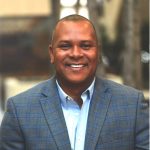 Andrie joined Medtronic in 2010 and has held several key leadership roles during his 11-year tenure.
Andrie joined Medtronic in 2010 and has held several key leadership roles during his 11-year tenure.
Andrie has over 20 years of successful sales and leadership experience in the healthcare industry. He has earned more than eight annual sales awards during his time with Medtronic, including most recently the 2017 President’s Club award for Medtronic Surgical Technologies. Andrie serves on Medtronic’s African Descent Network (ADN) Executive Leadership Board, and he is a Medtronic Women’s Network (MWN) Mentor.
Andrie has a Bachelor of Science in Marketing from Texas A&M University and a Master of Business Administration in Healthcare Management. He and his wife, Brandi, have four active children (Lainey-17, Keira-14, Mia-11, Trent 7). When away from work, Andrie enjoys spending time with his family, college football, travel, reading industry journals, and DIY projects.
Love the show? Subscribe, rate, review, and share!
